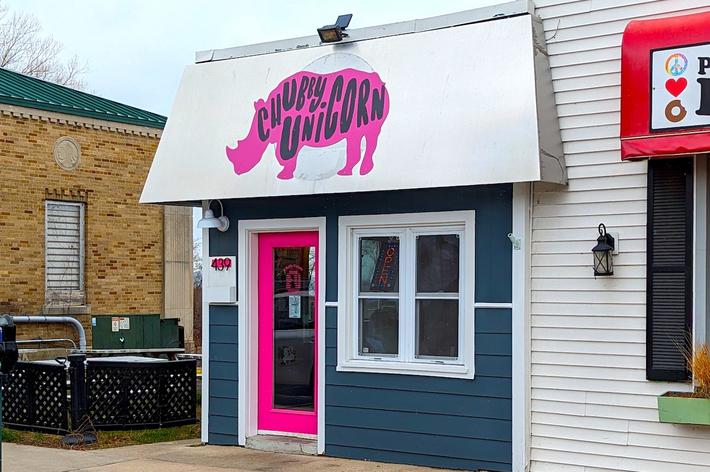HARD TIMES FOR HORSES
Oct. 31, 2010
Hard Time for Horses: Veterinarian Tanja Molby works to make a differenceBy Anne Stanton
On the outskirts of Kingsley, there was this weird scene last Sunday
of riders and their horses sauntering down the shoulder of the road
and turning into a dirt driveway that was already lined with
four-wheel drive cars, trucks, and horse trailers.
They were drawn by an offer of free medical care for their horses.
“We were jamming,” said Tanja Molby, a Suttons Bay veterinarian. “We
had three teams and we all worked from 9:30 a.m. to 6 p.m., nonstop.”
Molby organized the clinic to prepare horses for winter’s extreme
conditions and skimpy food supplies. She and the vet teams worked on
the horse’s teeth to ensure they could painlessly and thoroughly chew
their food. They also gave the horses physicals, vaccinations and
castrations, when necessary.
Molby is heartsick over the number of horses in desperate need of food
and medical attention this year. She doesn’t blame the owners, whom
she repeatedly stressed are good people, but simply broke.
“They’ve lost their jobs, can’t get a new one, perhaps had terrible
medical problems. These people aren’t intending to be cruel or
neglectful to horses. But the state of Michigan is out of money to
help them, the rescue groups are overfilled. Completely. They can’t
take any more horses and Michigan no longer has slaughter houses.
That’s actually a good thing, but now people don’t have an
alternative.”
4,000 ON THE BRINK
Molby heads a new nonprofit that aims for sustainable emergency care
and food across the state because the problem is huge and
lingering—4,000 horses are said to be on the brink of starvation. She
confessed she has absolutely no experience in nonprofits—she came here
in 1987 from Germany as an exchange student and “stayed forever” after
earning a veterinary degree from Michigan State University.
As one of the few large animal veterinarians in the area (they don’t
make much money), Molby saw business drop off as clients were forced
to pare their budgets. She was prompted to take action after Steven
Halstead, the state’s official veterinarian, called her last spring
and asked her if she’d be willing to travel with him to perform mercy
euthanasias for those on the edge of dying.
“I told him, I think we can do better than that,” she said.
Molby reached out to area horse owners, and the group formed the
Michigan Equine Foundation. Last week, they brought together
high-ranking horse experts at Black Star Farms, including Halstead;
Don Coe, owner of Black Star Farms and vice chair of the Michigan
Agriculture Commission; Hal Schott, a professor at the MSU College of
Veterinary Medicine; and guest speaker Derek Knottenbelt, professor of
Equine Medicine at Liverpool University.
Over the weekend, the group came up with a tentative plan to form a
humane society for horses, similar to what’s available for cats and
dogs. The eventual goal is to set up three or four drop-off locations
in the state, where a trained professional could triage horses (give
medical attention to those most likely to survive), return them to a
healthy state, and adopt them out.
“And honestly, to make that sad decision of whether to euthanize.
Maybe if it’s a 36-year-old horse, emaciated and very ill; we have to
be fair to that animal” Molby said.
FUNDRAISING IDEAS
The humane society would need sustainable funding. One idea among
several was to set up a voluntary horse registration. “If one-third of
the owners of Michigan’s 155,000 horses paid a $25 registration fee,
that would total $1,250,000, and that would be enough,” Molby said.
Angie Kirby, president of the nonprofit (Molby is the CEO), said the
nonprofit can implement the ideas that these big thinker policy makers
are suggesting.
“I’m a 4-H leader, a mom, and also a professor with access to these
academic folks, and I know what to do with the data we’re collecting.
Meanwhile, we’re offering a grassroots perspective to these experts,”
said Kirby, who teaches research techniques at Spring Arbor University
The medical clinic held last week did just that. Held on Sunday at the
home of the North Rescue founder, it included several horses—Princess
was one of them—that were rescued from a Lapeer County home. Fifty
horses were trapped in stalls that were so full of manure that the
horses could literally climb over the stall walls, said Susan
Henschell, who adopted Princess last year.
Some of the horses are still there because there aren’t enough
adoptive homes, she said.
On Sunday, MSU veterinary students worked in teams with Molby and two
other vets supervising.
“We made a tiny, tiny little dent. And a tiny dent is better than
nothing,” said Molby, an attractive 40-year-old, who herself is
wondering how to survive. She has a clinic to run, a large college
loan to pay off, and increasing numbers of customers asking for a
break.
She refers many of them to the Michigan Hay Bank, which was set up by
another nonprofit (the Michigan Horse Welfare Coalition). She also
dispenses hay that area folks have donated to her.
THANKFUL FOR CLINIC
Molby said that most people are severely embarrassed over their
inability to care of their animals, but on Sunday, the horse owners
spoke frankly. Henschell, of Kingsley, said she lost her job at Tower
Automotive, which moved its plants down south and out of the country.
She used to earn $17 an hour as a press operator, but hasn’t worked
for 18 months. Yet she still accepted three rescue horses because they
had no other place to go.
“I’m just so thankful for this clinic,” she said.
Sue Arlt, 56, who hasn’t been able to work since a traumatic head
injury three years ago, is trying to sell some of her 10 horses and
three mini horses.
“The market is really swamped right now, and there’s not much resale
value,” Molby said. “People are taking them to auctions and leaving
them in trailers or tying them up to trees. The auction is over and
there are all these horses left. These are good people, they aren’t
bad people. They simply don’t have the money or alternatives.”
Kirby said one horse owner is a single mom of an autistic son and
working three jobs. She had to sell a draft horse, which was a
therapeutic horse for her son.
“She’s a 4-H leader, and I didn’t know anything about her. She says,
‘We hide very well, and we’re very embarrassed.’ She’s been living
hand to mouth and then they cut her hours. She found out about our
clinic, which we threw together. I give credit with Tanja for all of
this. She’s incredible.”
Trending

Springtime Jazz with NMC
Award-winning vibraphonist Jim Cooper has been playing the vibraphone for over 45 years and has performed with jazz artist... Read More >>
Dark Skies and Bright Stars
You may know Emmet County is home to Headlands International Dark Sky Park, where uninterrupted Lake Michigan shoreline is... Read More >>
Community Impact Market
No need to drive through the orange barrels this weekend: Many of your favorite businesses from Traverse City’s majo... Read More >>


